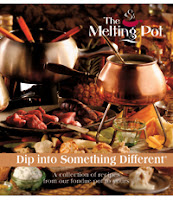 The statistics overwhelmingly support the fact that consumers are buying e-books. This past Christmas season saw a record number of e-readers sold with the introduction of the new Kindle Fire as well as other e-reading devices. And we know that there is now a Chef Stand and Stylus on the market that allows us take our readers into the kitchen and use an e-book without ever touching the tablet.
The statistics overwhelmingly support the fact that consumers are buying e-books. This past Christmas season saw a record number of e-readers sold with the introduction of the new Kindle Fire as well as other e-reading devices. And we know that there is now a Chef Stand and Stylus on the market that allows us take our readers into the kitchen and use an e-book without ever touching the tablet.But you might be thinking, I have a lot of inventory of printed books that I need to sell first. My response is the two are not connected. People that don't have e-readers are not going to buy an e-book but those with e-readers are looking for content to use on their devices. The right strategy is to offer both formats.
There is no downside. It is too early in the game to quote any accurate statistics (even if you can find any; I haven't been able to) regarding how many cookbooks have been purchased in an e-format but that doesn't mean consumers won't buy if they are available. Plus, if your book is on Amazon.com and clearly marked as available in an e-format you target both demographics--those with an e-reader and those without or who just prefer a printed cookbook.
The way I see it you can't go wrong with promoting and offering both formats.



